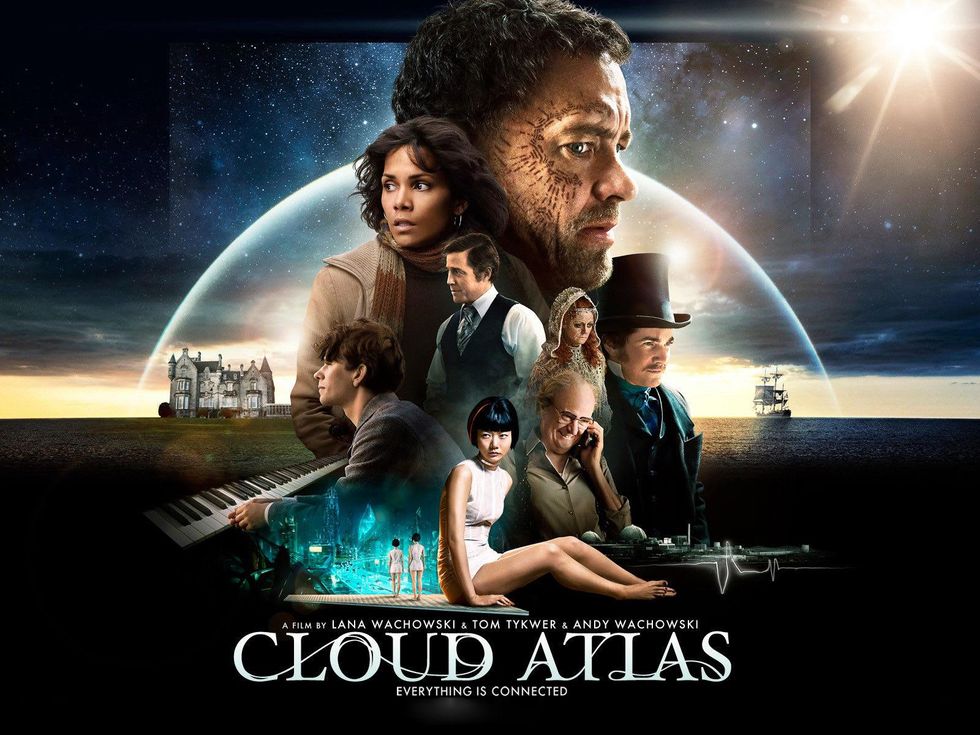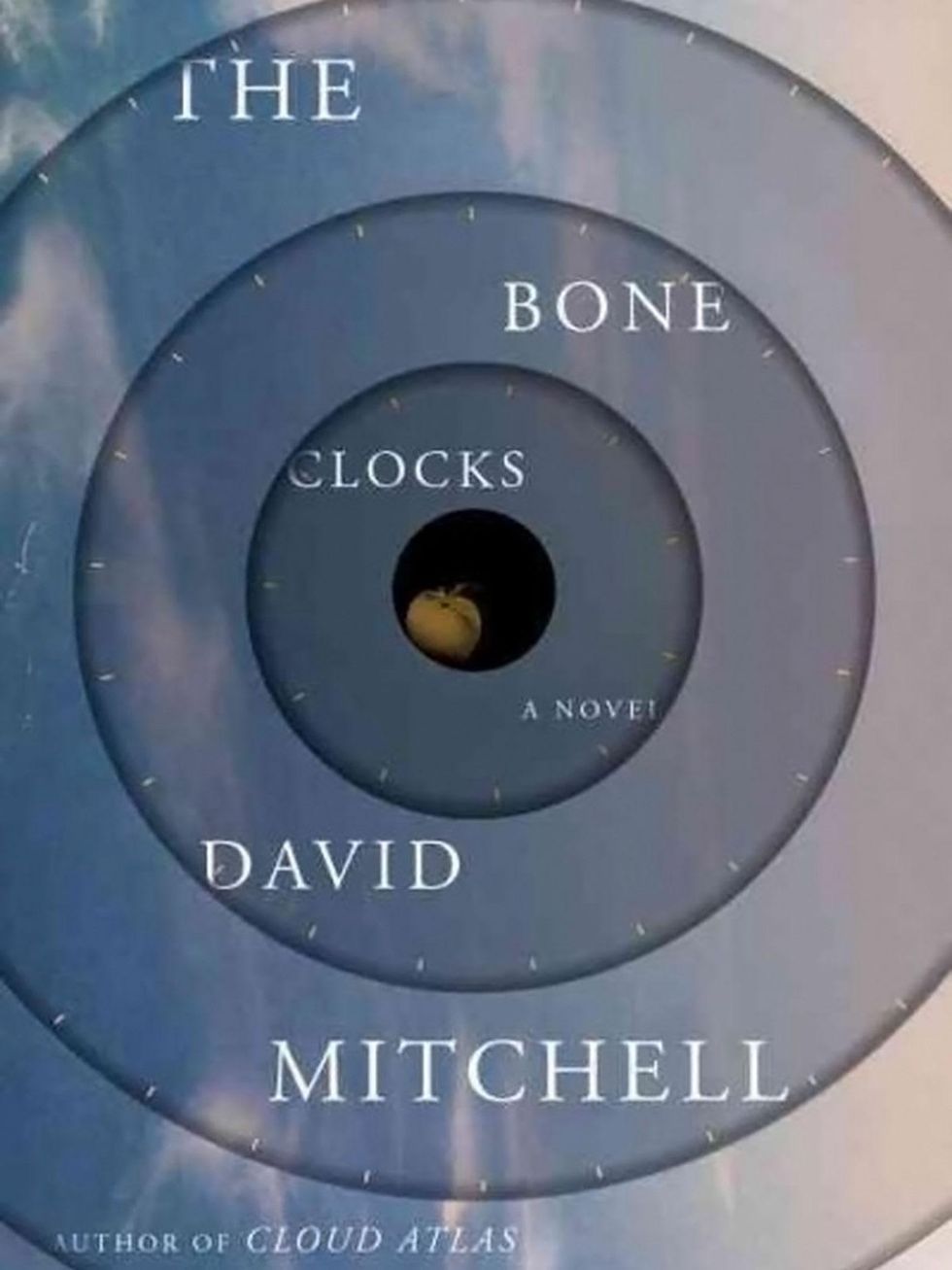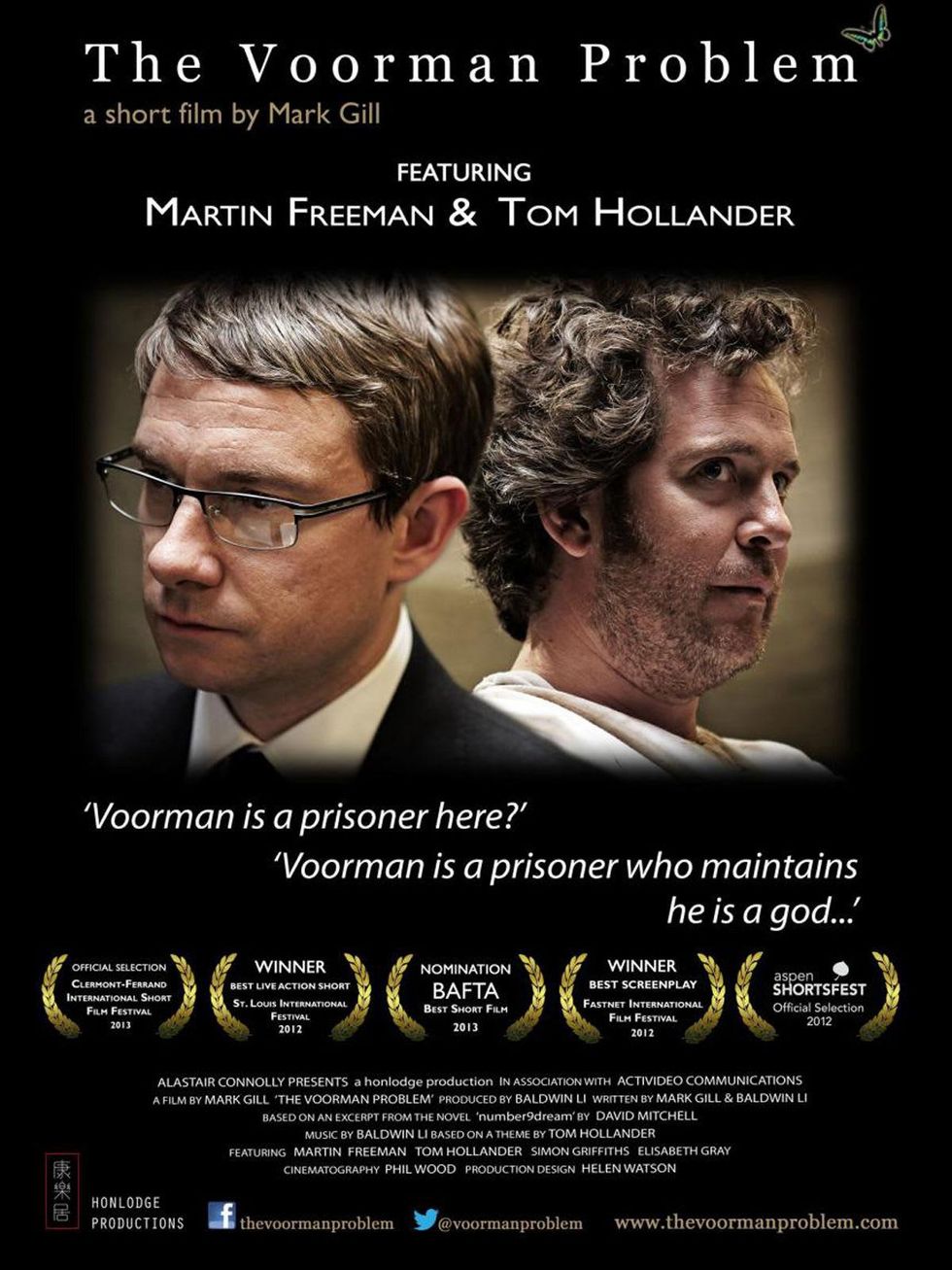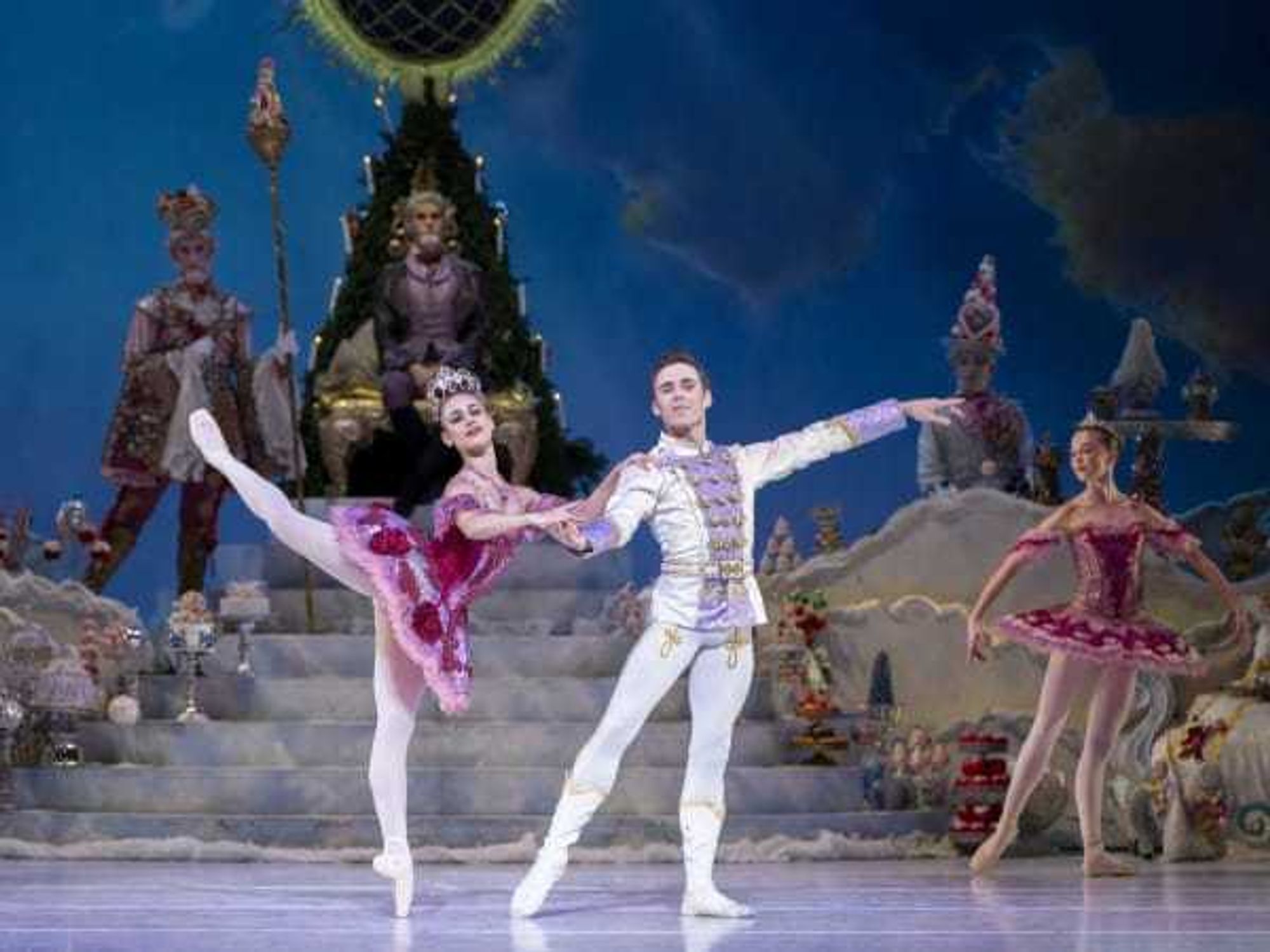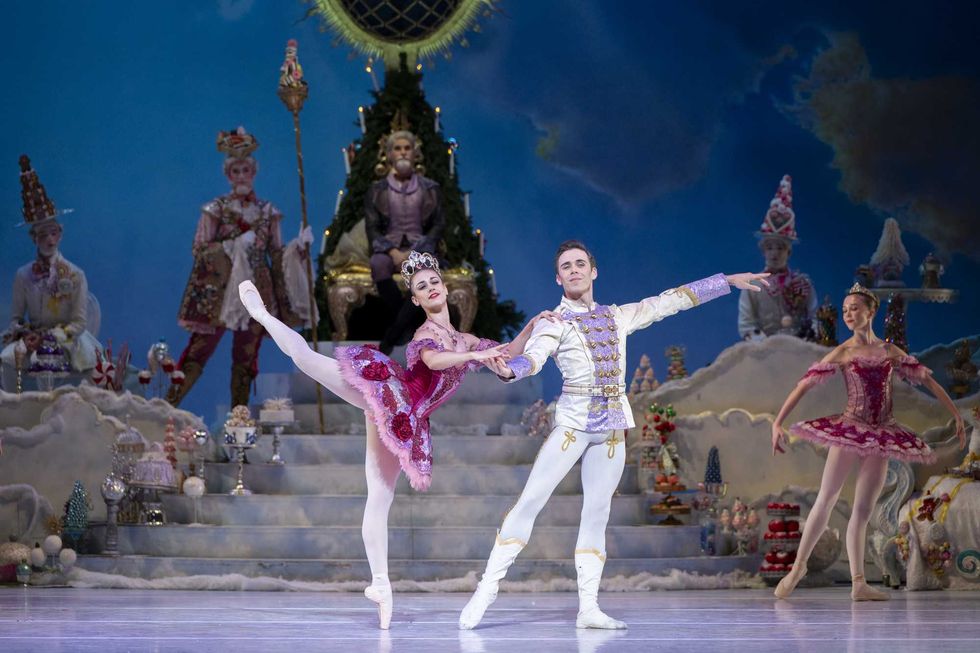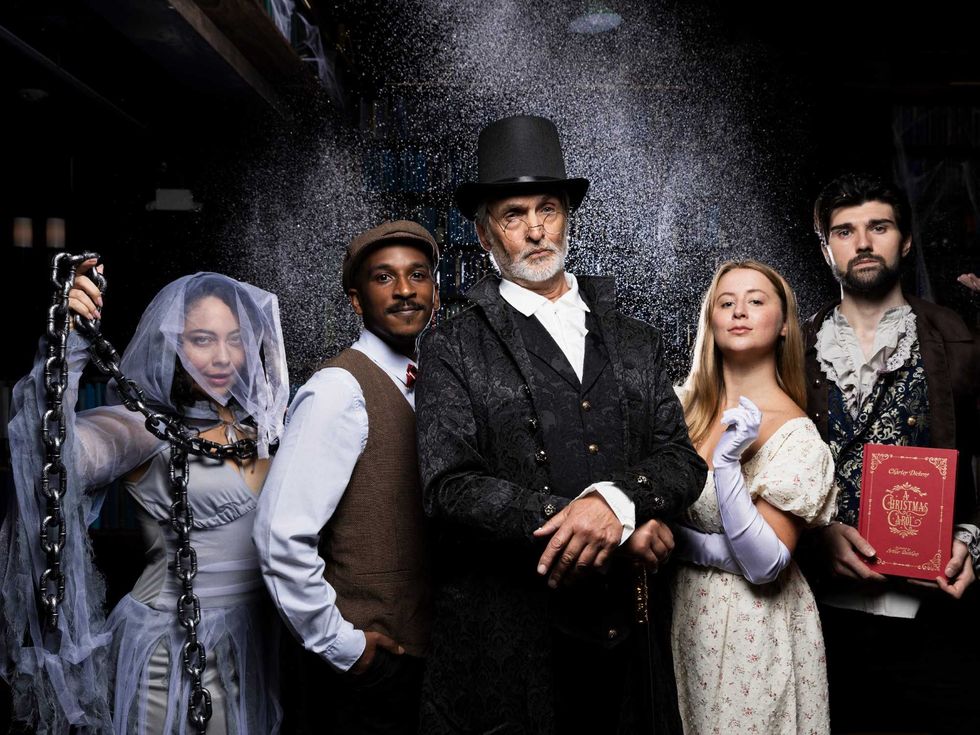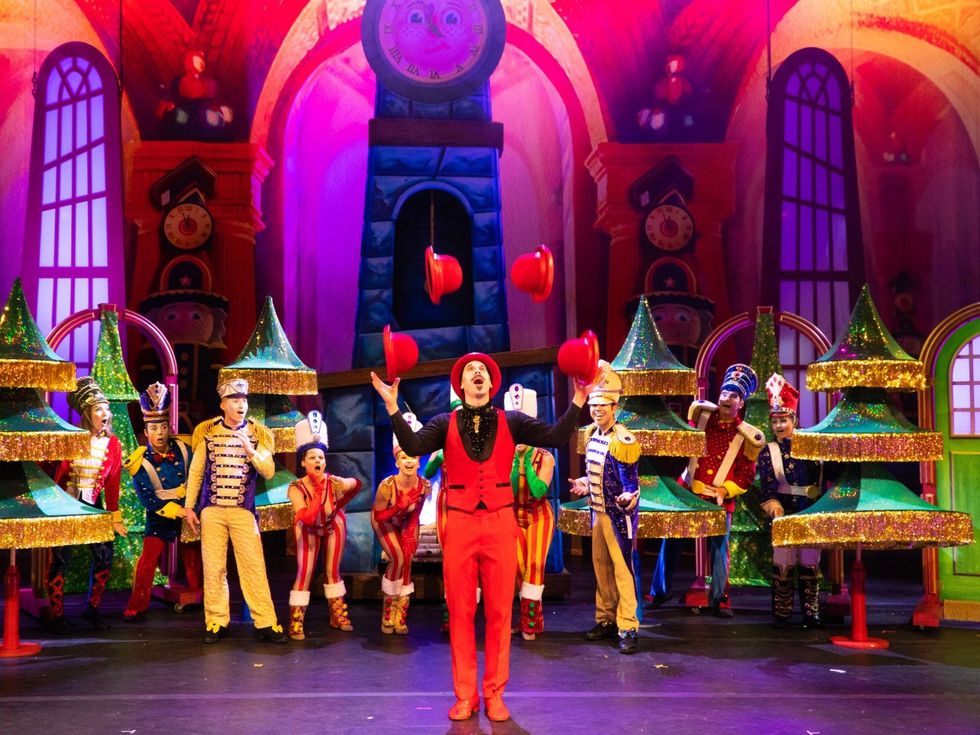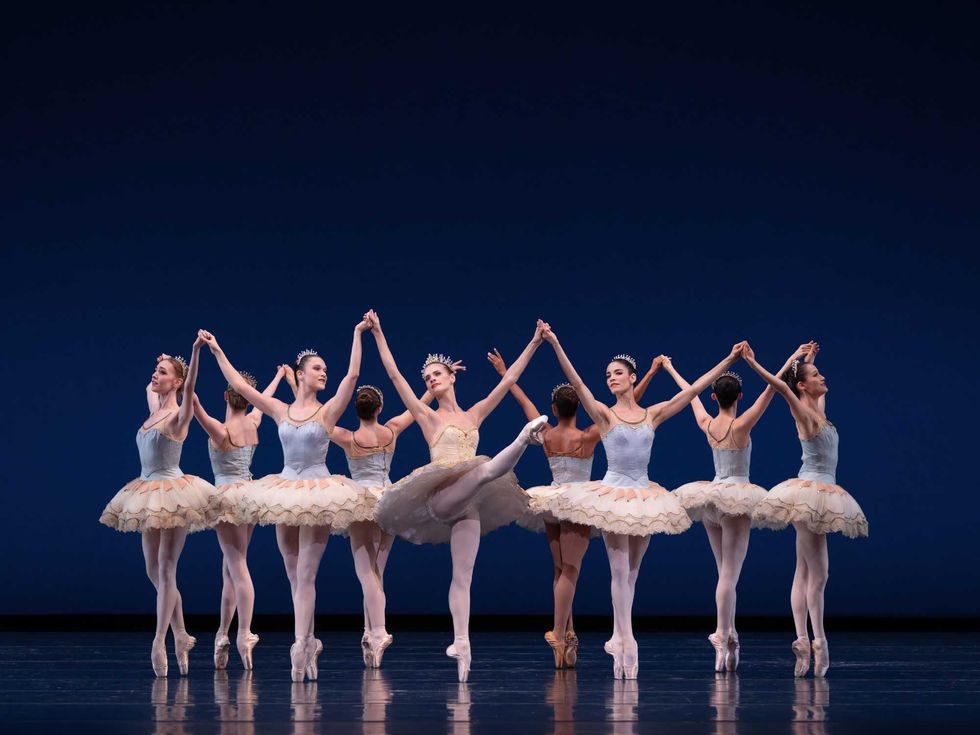Author Imagines Universe
The author as God: In trippy interview, best-selling novelist David Mitchell reimagines the universe
Warning: Buckle up your brain because this interview gets trippy.
In acclaimed author, and Inprint 2014-2015 season opener, David Mitchell’s 2001 novel number9dream the protagonist describes a movie he’s watching. In the film within the novel, a psychiatrist is asked by a prison warden to assess the sanity of an inmate, named Voorman, who claims to be God. Voorman is worshipped by the other prisoners and is quite content behind bars, snug in a straightjacket, maintaining this universe he proclaims he called into being nine days previously. Within a day he has the psychiatrist doubting his own sanity.
Stay with me, because real life gets as weird as fiction. While no film director has attempted adapting number9dream for screen — unlike Mitchell’s time and space jaunting novel Cloud Atlas — this snippet of a movie summary inside number9dream has been turned into an Oscar nominated short film, The Voorman Problem, starring everybody’s favorite Holmes sidekick and Hobbit, Martin Freeman.
Now David Mitchell’s latest epic The Bone Clocks has been released, and in one of the six novella sections that create the novel, readers meet the character Crispin Hershey, an author once the darling of the literati, now soon-to-be has-been, who in his youth wrote a stunning short story titled. . .The Voorman Problem.
Which is the real Voorman?
When I got to speak to Mitchell recently before his trip to Houston for the Inprint Margarett Root Brown Reading Series Sunday night, I asked him if he would help me separate this tangle of fiction, film, reality and imagination all making claim on the same material: God imagining the world into being from a prison cell.
And so I went straight to accusation: Does this make you Voorman?
“It’s a nice knot, isn’t it?” said with a chuckle was Mitchell's oh so unhelpful answer.
And so I went straight to accusation: Does this make you Voorman?
“Does this make me Voorman? Well, all novelists are Voorman, and all artists are Voorman, and Voorman is all artists.” Mitchell added a spooky “Oooohh” to the end of his statement made even funnier to American ears when said with a quiet, unassuming British accent.
A connected world
This is the kind of “what is fiction?” “what is reality?” rabbit hole readers willingly dive into when they read a Mitchell novel and especially if they read more than one. There’s been quite a lot of sifting through his work by critics and fans looking for connections between his worlds. Those connections are there and real because Mitchell is on his way to creating a kind of career spanning fictive universe, an “Über-novel” as he calls it.
This is the kind of “what is fiction?” “what is reality?” rabbit hole readers willingly dive into when they read a Mitchell novel and especially if they read more than one.
And how does he organize this galaxy of characters, who might literally span a literary galaxy?
“I don’t really,” he admits. “I go back and see what they [the characters] were doing and who they were and their original carnations and incarnations in previous books, and if I think they’ll fit the job then I’ll reemploy them in a different phase of their life and often in a different area of the world in the uber-novel.”
He admits it might be better if he was the kind of author who could connect plots, characters and books as lines on “a massive corkboard,” but he says, “I’m happy for it to come along nicely without me looking at it.”
The Bone Clocks, the latest novel within the Uber, spans the life of one English girl, Holly Sykes, but takes detours across a millennium. Each of the six novella sized sections sends readers into a new decade, inside the head of a new narrator and many times into a new genre: a runaway girl story, a privileged man’s Faustian bargain, a Hemingway-esque war correspondent’s tale, a satire on the writing life.
This change in narrator and genre “make the six novella distinct and gives them their own flavors and textures," Mitchell explains. And those disparate genres remarkably build into a fantasy/sci-fi battle between good and evil, until it all falls away into an uncomfortably realistic, dystopian future.
Crowd sourcing
Hidden away within these stories are connections to many of this other works. I asked Mitchell what happens if, as his readership grows as big as his uber-universe and fans begin to comb through his work for those connections they find inconsistencies, because let’s face it that’s what fans do best.
No one forces you to sign the options papers at gunpoint,” he says, but in his case he was very glad the filming of Cloud Atlas happened.
Mitchell seems cheerful at the prospect. If readers are fans enough to find contradictions, that’s less organizing work for him and he can fix them in the next work. “The supervision and management and sort of time lord-ship of the Uber-novel gets crowd sourced out,” he says.
With Inprint having it’s most cinematic season, I couldn’t end our talk until I asked Mitchell how he braved that other knot of fiction, film, and shared realities, the movie Cloud Atlas.
Mitchell knows this is a story that doesn’t always have a happy ending for an author.
“What you then feel depends on whether you’re happy or not with the film. If you think it sucks, it would be most wonderful that it’s happened, then horrendous and mortifying. You should get a sense of what the director really wants to do with it from their past record and from talking with them. That’s your responsibly. . .No one forces you to sign the options papers at gunpoint,” he says, but in his case he was very glad it happened.
“It’s quite metaphysically interesting, I suppose, to have something from your imagination then appear 10-foot high on the screen of a multiplex. Yeah, it’s quite a kick,” he concluded.
David Mitchell opens the 2014-2015 Inprint Margarett Root Brown Reading Series on Sunday, Sept. 21 at 7:30 p.m. in Cullen Theater at the Wortham Theater Center.
